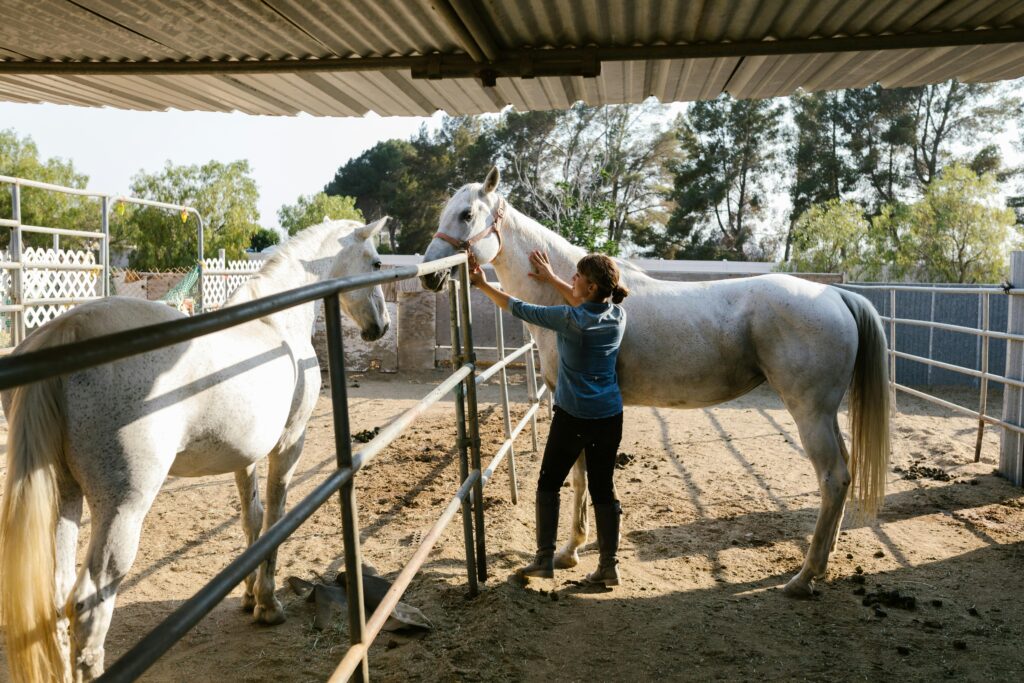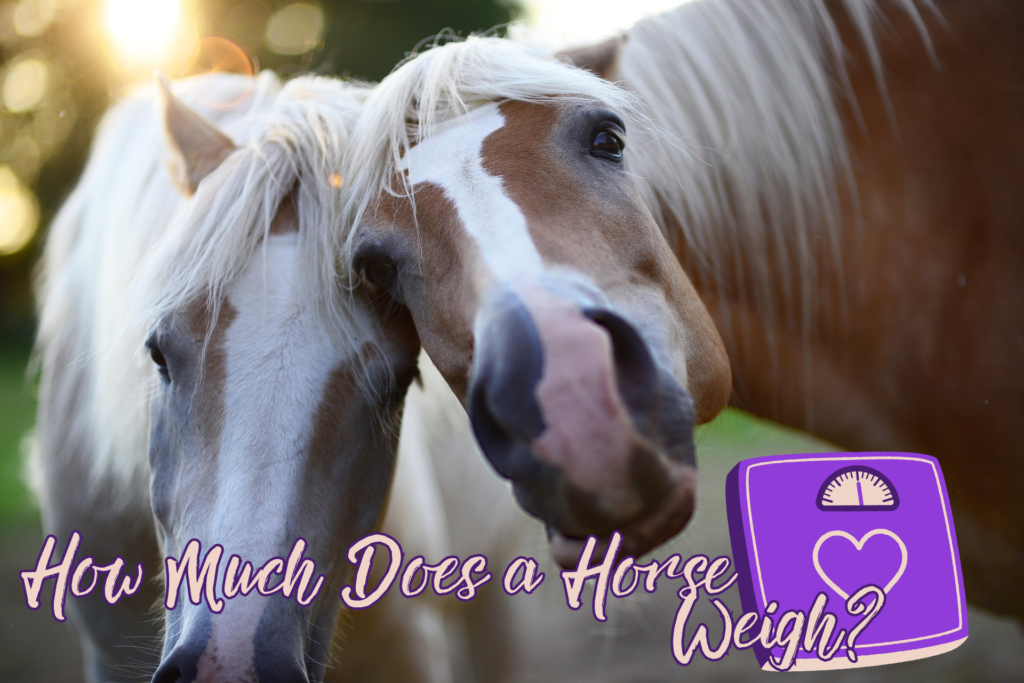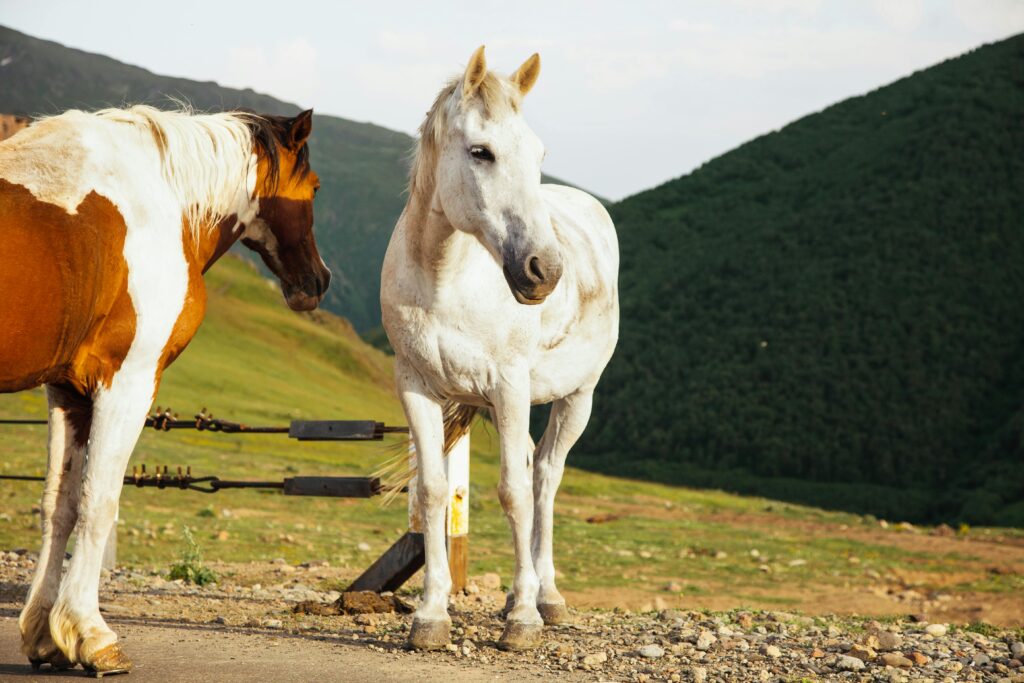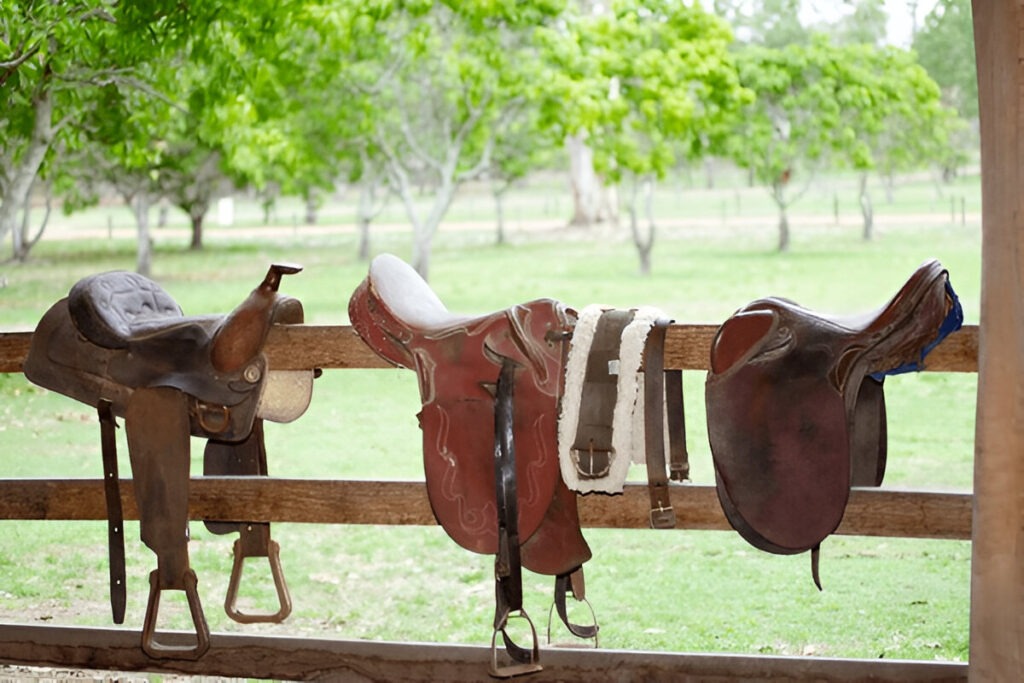How long do horses live? Understanding Horse Lifespan
Horses are such wonderful animals that bring much joy and companionship into the lives of people everywhere. Many horses, whether used for riding, racing, or farm companionship, have won the affection of so many people with their great strength, grace, and intelligence.
Like any animal, having a notion of a horse’s life expectancy is paramount to ensure the animal receives the care, health, and overall well-being through the stages of its life. How long horses live is not the straightforward question one might think because several things add to longevity. This article will explore in depth, the average age horses are living, those factors affecting this life expectancy, the breed and how long horses can live, good care as a means to extend your horse’s lifetime, and, finally, taking good care of the aged senior horse.
The Average Life of a Horse
The life span of a horse averages out from 25 to 30 years, which will also depend on different variables. Some horses have lived well beyond the high ends of this range; it has happened that some reached into their 40s, or even 50s, though such incidents are really rare. As such, the life span mostly rests on genetics, breeds, environmental conditions, and levels of care for most horses. Those horses in great condition with good nutrition and better health tend to live longer.
Generally speaking, a horse is measured in “horse years,” and it should be mentioned that they age at a much quicker rate in the beginning years compared to humans. A one-year-old horse is roughly like a six-year-old human in development, and at four years, it becomes like an 18-year-old human in maturity. With age, however, horses do tend to slow down, and their health may require more attention, especially in their senior years.
Factors That Impact How Long a Horse Lives
Although genetics and breed play major roles in the length of time a horse will live, there are several environmental and lifestyle factors that impact life span. Among them are:
Overall Health and Veterinary Attention
The health of a horse throughout its entire life is very important and plays a huge role in determining how long the horse can live. Like humans, horses need constant and proper care to keep them healthy and avoid diseases that may cut their lives short. Among the most critical factors in ensuring a horse’s longevity is regular veterinary check-ups.
These routine visits enable a veterinarian to observe the general health of the horse, address potential problems in their early stages, and administer timely interventions. Early diagnosis of a disease or condition-metabolic disorders, infections, or dental problems-can make all the difference in treatment outcomes and prevent minor issues from blowing out of proportion into serious health concerns.
Besides routine check-ups, vaccinations form a very important part of any horse’s health care program. Vaccination offers protection against lethal diseases in horses, including tetanus, equine influenza, West Nile virus, and rabies. Consultations with veterinarians to keep vaccinations up to date can considerably reduce the chances of horses acquiring preventable diseases.
Similarly, parasite control is one of the most essential means of maintaining the good health of horses. Internal parasites, including worms, and external parasites, such as ticks and lice, can cause a horse a myriad of health problems, ranging from weight loss and colic to skin irritation and infections. A properly developed deworming schedule, along with effective pasture management, will minimize parasites and maintain the horse’s digestive system and overall health in optimum condition.
Another extremely important area of a horse’s health is dental care. The teeth of horses grow continuously throughout their lives. If not properly taken care of, horses’ teeth can develop sharp edges, hooks, or other abnormalities that are painful and impede the ability of the horse to chew its food properly.
Regular dental examinations and floating, or filing off sharp edges, by an equine dentist or veterinarian are required to prevent dental problems and allow the horse to digest its food properly, which is vital for overall health.
These horses that receive regular and complete health attention, such as routine veterinary care, vaccinations, parasite control, and dental maintenance, stand a better chance of living long, healthy lives. All these practices not only avoid diseases and their effective early treatments but also contribute to the horse’s comfort, well-being, and quality of life.
Investing in their horse’s health allows owners to proudly see their equine friends enjoy so many years of an active and fulfilling life.
Nutrition and Diet

In parallel, proper nutrition forms a big part of how horses live their life expectancy. Nutritional needs regarding the correct proportion of fiber, proteins, vitamins, and minerals are much-needed in order to maintain health and support general body functions. Nutrition greatly helps horses build strong muscles, maintain organs healthily, and sustain energy resources-all elements that will surely contribute to the horse’s lifetime.
High-quality forage consists of grass and hay, which are the fundamentals of a horse’s nutritional needs. Forage provides the fiber needed to keep all digestive mechanisms working properly and prevents problems such as colic and impaction. In addition to forage, some horses may require concentrates or grains to satisfy energy demands, especially if they are highly active, pregnant, lactating, or growing. Yet, this is to be added judiciously in order to avoid overfeeding them leading to resultant obesity.
Equine obesity has, in fact emerged as one of the prime equine welfare issues because this disease process initiates several metabolic changes and pathological states such as chronic laminitis, metabolic disorders including Equine Metabolic Syndrome (EMS), and insulin resistance, conditions causing painful existence that eventually might also shorten a horse’s life span.
On the other hand, underweight horses have weakened immune systems, poor muscle development, and a lack of energy, which makes them more susceptible to illnesses and reduces their ability to recover from health issues.
Horse owners should be very keen to observe the weight of their horses from time to time to keep them in an ideal body condition. In addition, it deals with the horse’s BCS for determining whether the horse is underweight, overweight, or at an optimal weight. The right balance of nutrients, including essential vitamins and minerals, helps the horse’s body function properly and effectively ward off diseases.
Of equal importance in the horse’s diet is access to fresh, clean water at all times. Water is crucial for digestion, temperature regulation, and overall hydration. Severe dehydration can result in serious health problems, such as colic and kidney issues, which can become fatal if left untreated. The water sources should be clean and free from any contaminants to keep the horse healthy.
Good nutrition forms the basis of a horse’s health and longevity. Meeting nutritional requirements with food, along with access to fresh water and a clean environment, prevents obesity and underweight conditions with related health problems. In this regard, good nutrition with subsequent body condition monitoring greatly helps owners improve the quality of their horse’s life and gives them every chance at a long and healthy life.
Physical Activity and Exercise
Where overexertion and extreme physical exertion may indeed stress a horse’s body, leading to injuries, joint problems, and long-term wear and tear, it is actually normal and moderate exercise that helps maintain overall health and well-being in horses. Regular physical activity keeps a horse’s muscles toned, joints healthy, and cardiovascular system in top shape. Such exercise provides mental stimulation, reducing the likelihood of boredom or behavioral problems.
Horses kept in active settings with adequate turnout and provided with regular, moderate exercise usually lead healthier and longer lives. Turnout allows the horse to move around, graze, and express its natural behaviors that are so crucial for physical and mental health. Light riding, some groundwork, or even playing in a field may be all that is required to maintain fitness without overtaxing the body.
On the other hand, working horses, especially those in high-impact sports such as racing, show jumping, or eventing, have very demanding lives that may shorten their life expectancy. Such activities place a lot of strain on a horse’s musculoskeletal system, including their legs, joints, and hooves.
The repetitive stress from high-intensity training and competition can easily result in tendon tears, ligament damage, or degeneration of joints. On the other hand, the pressure to perform at elite levels can sometimes result in overtraining or inadequate recovery, further adding to the risk of long-term health issues.
While these sports can be rewarding and a display of the fantastic athleticism of horses, it is important for owners, trainers, and riders to make the horse’s well-being a priority: appropriate conditioning, rest, and recovery, with observation for signs of fatigue or injury. Regular veterinary check-ups and preventive care, such as joint supplements or physiotherapy, can also help mitigate risks associated with high-impact activities.
In a nutshell, it is moderate exercise and an active lifestyle that help keep the horse healthy and extend its lifespan. On the other hand, overexertion, especially at high performance or competition levels, may just have the reverse effect of reducing their life due to the great strain on their bodies. As a matter of fact, what guarantees longevity, a happy life, and quality in horses is always the balance between work and rest, with consideration for their health.
Mental and Emotional Well-being

A horse’s mental health can greatly affect its overall well-being and life expectancy. Horses that are stimulated, interacted with, and kept in the company of either humans or other horses are generally happier and healthier. On the other hand, isolation, boredom, and chronic stress will have adverse effects on health and ultimately shorten the horse’s life.
Horse Diseases and Common Conditions
There are a number of health issues that horses may go through in the course of their life, some of which affect their life expectancy. Some of the common diseases that may affect the horse’s life expectancy include the following:
Laminitis: A painful and possibly life-threatening condition affecting the hooves of a horse, which leads to lameness.
Colic: It is a digestive problem, ranging from mere discomfort to a life-threatening condition that may necessitate surgery.
Arthritis: The older horses may also set in with arthritis, which would affect their movement and, consequently, their quality of life.
Respiratory Issues: Horses can have respiratory problems when exposed to very dusty or ill-ventilated surroundings. This will eventually affect the general health and the horse’s life span.
Genetics
Genetics most certainly play a part in determining the life span of a horse. While some horses come into this world with the right genetic attributes that can keep them living long, others may be prone to certain health issues. Horses from particular bloodlines or those prone to problems in health may live shorter lives.
The Role of Breed in Determining Longevity
The breed is among the most influential factors in estimating how long a horse will live. While most horses can easily live an average of 25 to 30 years, different breeds present different lifespans. Below is a comparison of some common horse breeds and their typical life spans:
Ponies vs. Horses
Generally, ponies tend to be longer-lived than full-sized horses. Many of them are known to live well into their 30s and even into their 40s with good care. The reason could be due to their small size and generally low metabolic rates, probably contributing to slower aging.
Arabian Horses
The Arabian horses are one of those breeds that have been proven to be quite resilient and live a little longer than most other horse breeds. They can survive for an average of 30 to 40 years. Their good genetics and history of selective breeding for endurance contribute to their longer life span.
Thoroughbreds
Thoroughbreds are those breeds that are usually recognized for their speed and brilliancy in races. They have relatively shorter life spans as compared to other breeds. Their bodies usually bear a lot of stress and many of them are retired very early. With good care, the life span of Thoroughbreds ranges from 20 to 30 years.
Warmbloods
Warmbloods, commonly used for dressage and jumping, live from 25 to 30 years. These horses are of sturdy build and, with good care, can live quite long lives.
Draft Horses
The life span of large draft breeds, such as the Clydesdale and Shire horse, is slightly shorter, approximately in a range of 20 to 25 years. Large size puts more strain on the joints and cardiovascular system of such horses, so their lives are a bit shorter.
Miniature Horses
Miniature horses, being very small, outlive standard horses by far. Many miniature horses can live well into their 30s and, with good care, even reach 40 years or more.
Caring for Your Horse to Extend Its Life

photo by RDNE Stock project
Care is one of the most vital ways to ensure that your horse lives a healthy and long life. Some facets of equine care to help extend your horse’s life include:
Preventative Care
Regular veterinary care will help to prevent health issues from developing. Make sure vaccinations are current and regular procedures like deworming and hoof trimming are done on a regular basis.
Dental Care
The horses’ teeth grow throughout their lifetime, and poor dental health can cause problems eating and weight loss and can even cause colic. Your horse should be checked for dental problems on a regular basis.
Diet and Nutrition
Provide a balanced diet based on your horse’s needs. Work with your veterinarian to determine the best way to meet your horse’s nutritional needs based on its age, activity level, and medical conditions.
Exercise and Turnout
Allow your horse regular turnout and opportunities for exercise. This will promote healthy circulation, muscle tone, and mental stimulation.
Comfortable Living Conditions
Your horse requires a clean, dry, and safe place to live. Make sure his stall or pasture is free of hazards, and provide shelter from rain and sun.
Aging Gracefully: Identifying Signs of Senior Horses and What To Provide
With age, horses change both physically and mentally, and specific care is required for them. Recognizing the signs of aging in horses and adjusting their care appropriately is crucial for maintaining their quality of life.
Changes in Mobility
Older horses may develop arthritis or other joint issues, causing stiffness or lameness. Gentle exercise and supplements designed to support joint health can help manage these symptoms.
Weight Management
This may be because of metabolic alterations or dental problems that render it difficult for the aged horse to take in and digest nutrients. Their diets should, therefore, be altered to offer the correct nutrition in an easily digestible form.
Cognitive Changes
A few aged horses develop cognitive issues marked by confusion, disorientation, and behavioral changes. Such symptoms can be alleviated by making their surroundings as familiar and stress-free as possible.
Specialized Veterinary Care
Senior horses have to visit the vet more frequently to monitor age-related conditions such as Cushing’s disease, metabolic disorders, or even problems with their vision. Regular check-ups are important for maintaining these conditions.
Your Partner for Life: Why Understanding and Extending Your Horse’s Life Mattrs
Understanding your horse’s life span is about creating that lifelong partnership: one underscored by care, respect, and attending to needs. A horse isn’t simply a pet or animal-it is a great friend to share and give you those powerful bonds into their inner sanctum, their world of emotion. You extend its lifespan, taking time with the extra years in enjoying quality time through its growth in company.
Conclusion:
A Long and Healthy Life for Your Equine Friend
The life span of horses is quite varied, ranging in relation to many aspects: breed, genetics, care, nutrition, and living conditions. You can give your horse the best chances of living a long and healthy life by properly caring for it throughout its lifetime.
Whether your horse is young, middle-aged, or a senior, knowing how its needs change throughout life will make it happy and content with life. The relationship between you and your horse is a lifelong thing; taking care of your horse lovingly will definitely help you spend a good amount of years together.
Yuns Legdm is a passionate advocate for pet care and the founder of this website, dedicated to providing valuable information for fellow pet lovers and veterinary professionals worldwide. With a deep love for animals, Yuns created this platform to connect passionate pet owners with expert insights from veterinarians around the globe.
This website grows with you—the passionate pet owners and veterinary experts—creating a trusted space where knowledge, experience, and love for animals come together. Whether you’re seeking advice on pet health, nutrition, or general well-being, this platform is here to support you on your journey of responsible and loving pet care.





